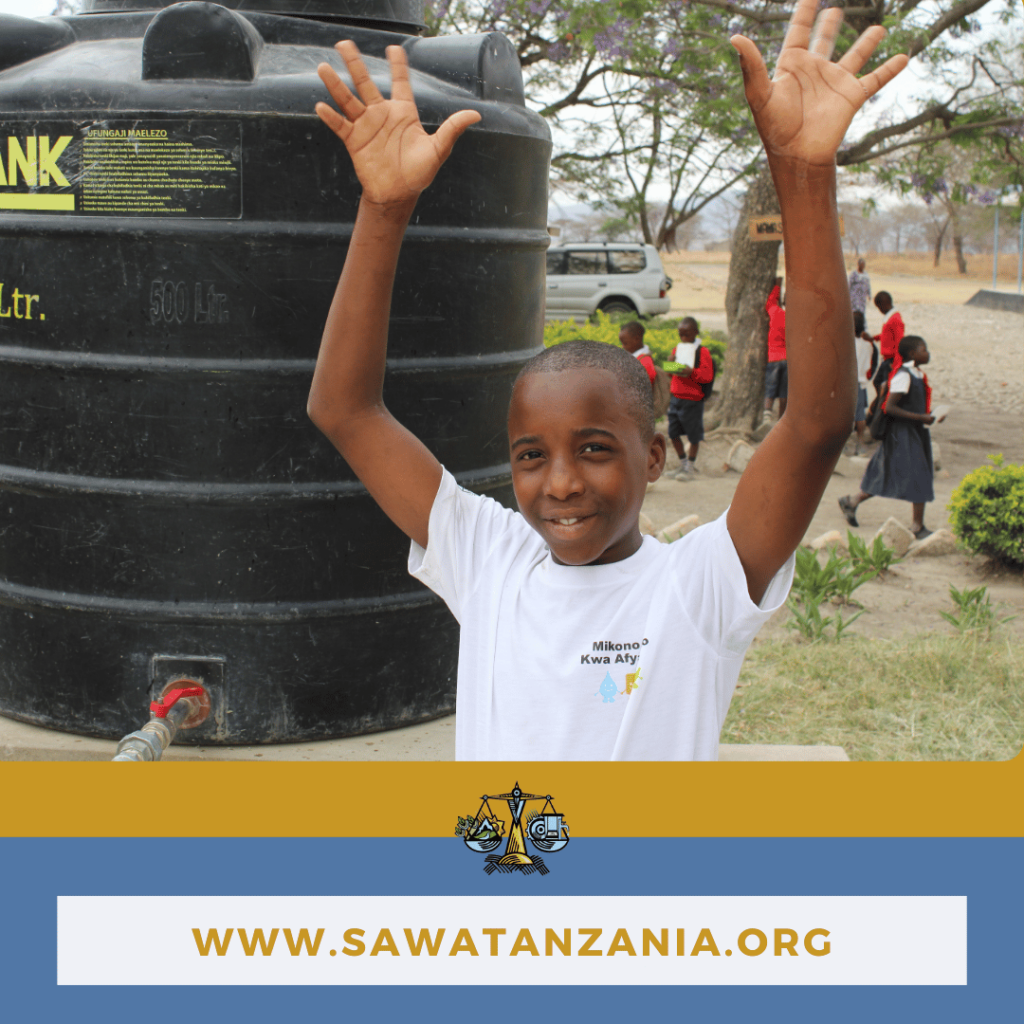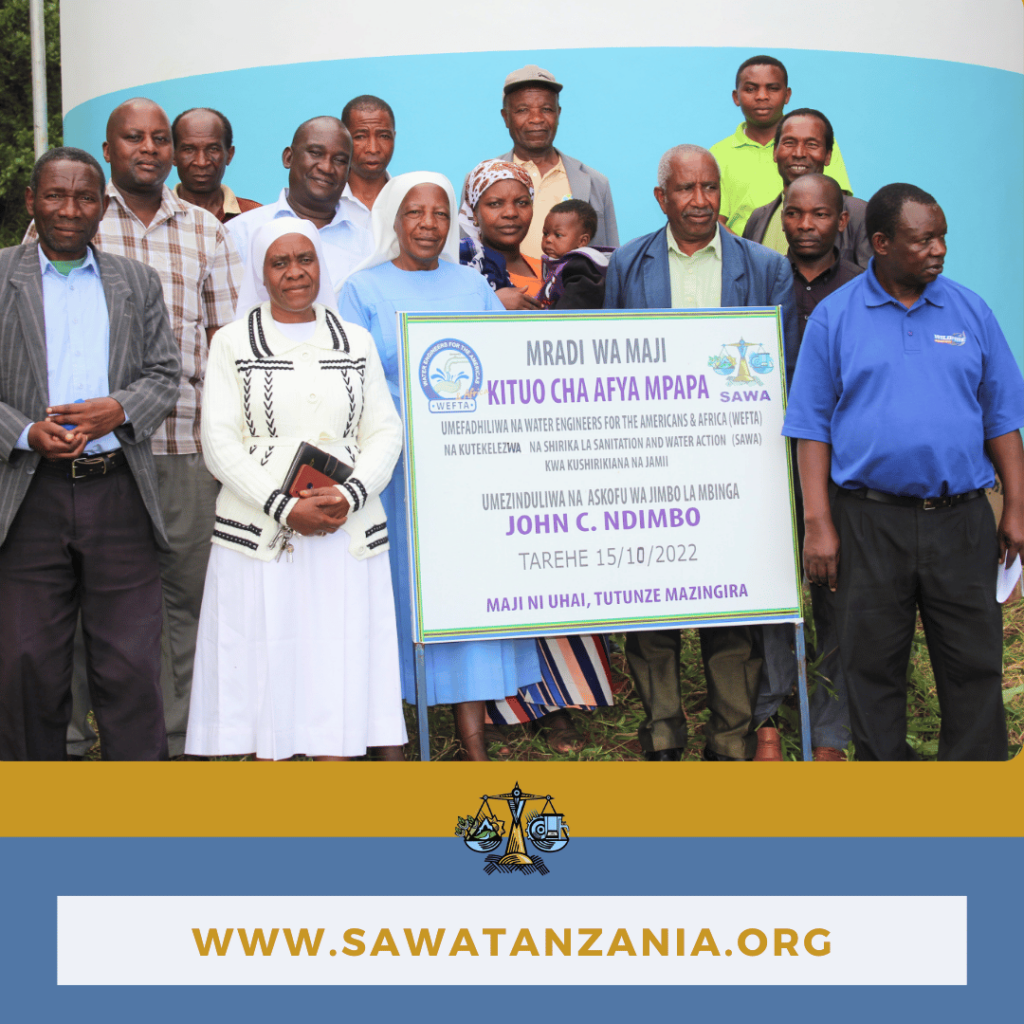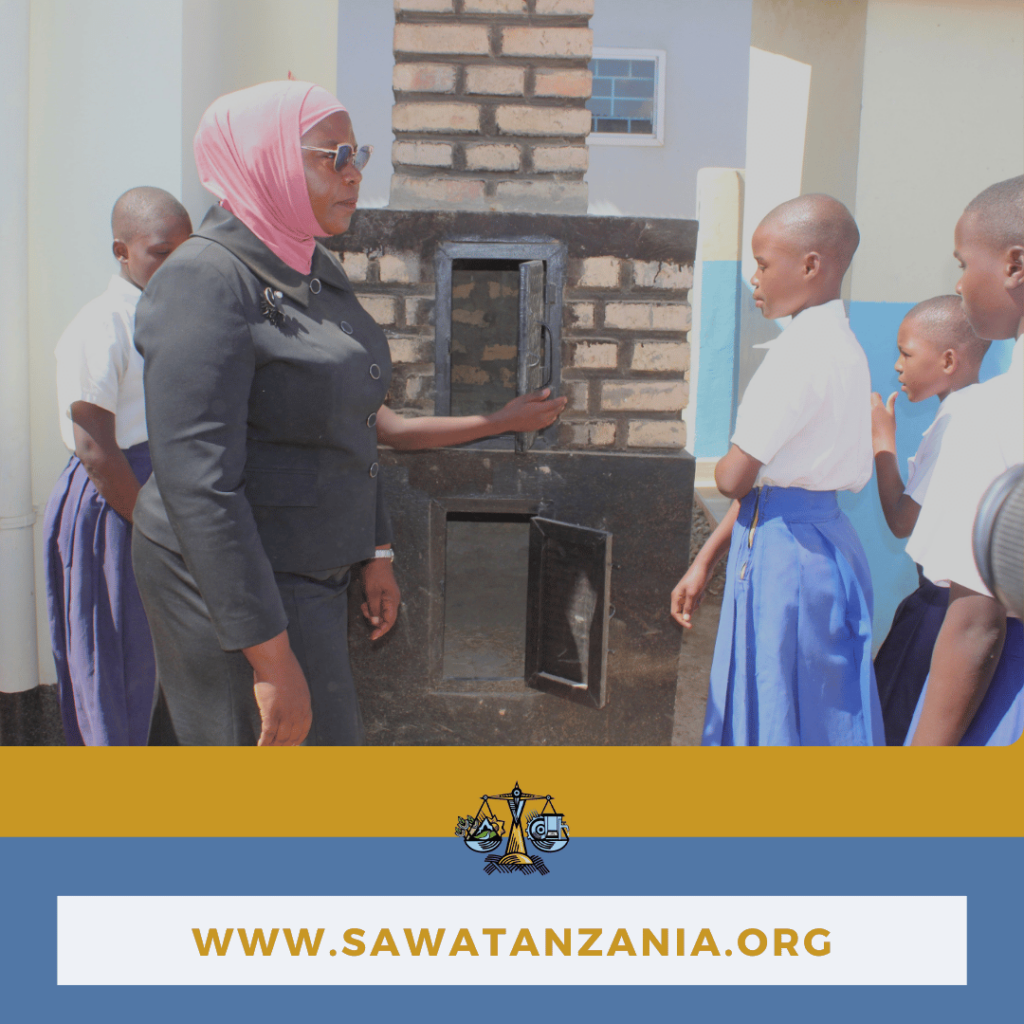Where: MBEYA AND SONGWE REGIONS
Project Period: August 2020 and July 2021
Total Cost: TZS 1,162,474,2001 (USD 500,419)
Partner/Funder: UNICEF
The programme improved WASH infrastructure and wash services in eleven (11) health facilities where all health centres were equipped with basic water services. Benefitted health centres are Mlungu, Inyala, Iwowo, Ilindi, Wimba Mahango, Songwe, Nanyala, Mbarali, Kandete, Makambini and Chalangwa.
The Programme had three main outputs:
Output 1: Improve WASH infrastructure in 11 health facilities
Output 2: Equitable WASH services for better health and education for children
Output 3: Strengthened Menstrual Health and Hygiene (MHH) awareness, social support and WASH services to adolescent girls
Key Achievements:
Improve WASH infrastructure in 11 health facilities
-
11 healthcare facilities in Tanzania have been provided with reliable water supply systems through various interventions. Five HFCs were drilled with new boreholes, and three of them have been installed with solar-driven pumps. A small reticulation network tied to an existing borehole was installed at Chunya District Hospital to improve water services. Two HCFs have an underground rainfed storage tank, and nine HCFs have overhead tank towers and storage tanks with different capacities. A community benefitting 83% of the population has a 10,000-liter storage capacity, and a primary school with 413 school children has reliable water supply. To ensure sustainable management of water supply, a community-based water supply organization (CBWSO) was formed and trained to manage the system. Regular follow-up visits have been conducted by the SAWA team, regional and district teams, UNICEF, and Ministry of health staff to ensure the reliability of the water supply systems. Some gaps and challenges were identified during the follow-up visits, and SAWA addressed them by identifying alternative sources for water supply, constructing intake, and installing a pipe network.
-
The rehabilitation of two existing toilet blocks has been completed. The first block is at Wimba Mahango and has four stances for outpatients. The rehabilitation work focused on repairing doors, hand washing facilities, chambers, and removing an existing laundry place, which was far from the delivery room. The place was turned into an additional toilet stance, and painting works were completed. One room that was set for people with disabilities (PWD) in the existing toilets has been turned to cover for children, and a new PWD facility is part of the new block for staff. The second block is at Ilindi and has three stances for outpatients. The rehabilitation work included fixing tiles, hand washing facilities, and painting.
-
All 11 health care facilities in Mbeya and Songwe have received the required personal protective equipment (PPE) as per plan. The materials supplied include handwashing soap, gloves, sanitizer, disinfectants, goggles, and masks. Each facility was facilitated to identify its specific needs for PPE, and the supplies were provided accordingly. Bedpans were also supplied to the facilities as requested. The approach used to identify the demand for PPE was by asking each facility to identify its needs, and the list was assessed according to the available budget.
-
Construction of incinerator, Placental pit and Ash pit have been completed at Wimba Mahango which replaced Madundas that was shifted into phase II. Supply of waste bins and liners, bed pans, construction of four incinerators to manage safe disposal of medical and human waste at dispensaries all has been done. The four facilities (Ilindi, Iwowo, Mlungu and Wimba Mahango) have benefited from the support.
-
Ashpit and placenta pits have been constructed and completed at Wimba Mahango Makambini, Mlungu, Iwowo and Ilindi dispensary. Construction of ashpit and placenta pits is completed at four dispensaries of Iwowo, Ilindi Wimba Mahango and Mulungu. Ashpit and placenta pit at Makambini were constructed to complete the package as the government had put only an incinerator
Equitable WASH services for better health and education for children
-
Rehabilitation of old toilets at Makambini Primary school has been completed With funding from UNICEF, SAWA facilitated improvement of WASH services in three schools of Lusungo and Nsambya in Mbeya district, Mbeya region: The Makambini primary school in Momba district, Songwe region, has completed the construction of toilets, water supply systems, and handwashing facilities in three schools. A total of 67 stances have been constructed in all schools, providing improved WASH services to 2,061 schoolchildren (1,066 girls and 995 boys). The new facilities include safe water, separate toilet blocks for boys and girls, a toilet block for teachers, and a room for menstrual health and hygiene (MHH) for adolescent girls. These improvements have created a safe and child-friendly environment for learning, ensuring uninterrupted school attendance for adolescent girls.
-
The three school committees in Lusungo, Nsambya, and Makambini, along with ward and village leaders, have received training on SWASH management. Additionally, 21 teachers (12 male and 9 female) were trained on hygiene promotion and forming school WASH clubs. The schools developed short-term action plans for monitoring WASH services and formed school WASH clubs with a total of 75 members (39 girls and 36 boys). UNICEF sports kits were provided to the schools to encourage sports participation. Nsambya primary school has allocated two plots for vegetable gardening and farming, which are owned and managed by the school WASH Club. Both Nsambya and Lusungo primary schools have also begun providing meals at school and have identified kitchen improvements to meet criteria for a two-star school.
-
Monitoring visits were conducted at Nsambya, Makambini, and Lusungo primary schools, and it was found that Nsambya was performing well due to its reliable water supply, while Lusungo and Makambini had intermittent water supply. A solution was sought for Lusungo’s water supply, while efforts are ongoing to address Makambini’s challenge. The old latrine at Lusungo has been demolished, and pupils are now using the new facility. All schools have not yet achieved star one status, but they have potential for star two status if they provide meals and set up SWASH Club projects. Close follow-up and technical support from the district are needed for sustained change.
Strengthened Menstrual Health and Hygiene (MHH) awareness, social support and WASH services to adolescent girls
-
The activity took place in Dodoma and involved the participation of 211 people, including members of the coalition, parliament, government officials, and representatives from local government authorities. The event saw the participation of 24 members of parliament and representatives from key sector ministries such as Water, PORALG, Health, Finance, and Agriculture. Discussions were held on social support, menstrual products and distribution, and awareness.
-
Training was conducted only in Tandahimba where 21 participants were trained. The training was conducted in Tandahimba one of the council found with bad condition in relation to MHH. The number could not be reached as other members of the coalition could not make their contribution. Hence the plan was revised and reached only 21 people, who received training successfully
-
One block has been constructed at Chang’ombe primary school in Dodoma to support girls and PWD, with facilities for menstrual hygiene needs, girls’ rooms, and a PWD room. It’s also good to know that the block has an overhead tank and water reticulation, as well as handwashing stations with three points. With a total population of 50 teachers (46 female and 4 males) and 3013 pupils (1511 boys and 1502 girls, including 400 adolescent girls), this will have a significant impact on the school’s ability to provide a safe and hygienic learning environment for all students.
Our sincere thanks go to UNICEF for their generous support and commitment to improving WASH infrastructure and services in Mbeya and Songwe regions. The impact of this project will be felt for many years to come, and we look forward to continued partnership and collaboration in our future endeavors.



